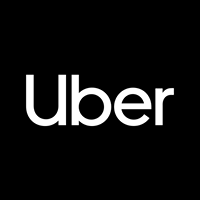UK Supreme Court Upholds Taxi Operators' VAT Exemption, Thwarting Uber's Tax Challenge
July 31, 2025, 9:58 pm
Uber lost a key UK Supreme Court appeal. Rival taxi apps outside London will not pay 20% VAT on fares. This ruling saves passengers from higher costs. It protects traditional private hire models. The decision underscores market competition and regulatory gaps in UK ride-hailing. A win for independent operators, a blow to Uber's push for uniform tax burden.
The UK Supreme Court delivered a decisive blow to Uber. The ride-hailing giant sought a major change. It aimed to force rival taxi operators outside London to charge 20% VAT on their profit margins. The Supreme Court rejected Uber's appeal. This landmark decision reshapes the competitive landscape. It brings significant relief to private hire companies across England and Wales.
Uber’s legal challenge stemmed from its own tax obligations. A 2021 Supreme Court ruling classified Uber drivers as workers. This decision forced Uber to account for VAT differently. Uber then sought to level the playing field. It argued rival operators should face the same 20% VAT charge. Uber contended these operators entered into direct contracts with passengers. Such a contract would trigger VAT liability.
The legal journey was protracted. The High Court initially sided with Uber in 2023. This meant a 20% VAT charge loomed for many operators. However, the Court of Appeal reversed that decision in July 2024. Private hire firms Delta Taxis and Veezu led the challenge. They argued against Uber’s interpretation. Uber then took its fight to the Supreme Court. The highest court in the land has now spoken. Its verdict upholds the Court of Appeal's reversal.
The Supreme Court’s ruling is unequivocal. It affirmed that private hire operators, outside London, do not directly contract with passengers. This distinction is crucial. It means they remain exempt from the 20% VAT requirement. The established agency model for private hire operators stands. This model allows operators to act as agents connecting drivers and passengers. It differs from the principal model, where the operator is the direct service provider.
This decision marks a monumental shift for the UK private hire sector. Many firms faced financial ruin. Implementing complex VAT systems would have pushed businesses to the brink. The ruling averts a potential crisis. It protects hundreds of independent operators. It safeguards their long-standing business models. These models have served communities for decades.
Passengers are the ultimate beneficiaries. Had Uber won, fares would have surged. A 20% VAT addition would make taxi services unaffordable for many. Vulnerable groups rely heavily on private hire services. Low-income households, disabled individuals, and older people use taxis for essential journeys. Increased costs would severely limit their mobility. They would face isolation. The ruling ensures continued access to affordable, reliable transport. It prevents crippling fare increases.
Uber’s own VAT application remains unaffected. Other courts have upheld it twice. The company’s aim was competitive parity. It sought to impose a similar tax burden on its rivals. This strategy failed. The ruling underscores differing contractual protections. These apply based on location. London’s regulations differ significantly from the rest of England and Wales. This creates an uneven landscape.
Regulatory inconsistency remains a key issue. London mandates a principal model for ride-hailing operators. This means companies like Uber directly contract with passengers. This compels them to charge VAT. Outside London, operators can choose. They can adopt either the agency or principal model. This choice impacts their tax obligations.
The ruling by the Supreme Court acknowledges this disparity. While upholding the agency model outside London, it highlights the fragmented regulatory environment. A call for a modern, consistent framework intensifies. Industry players advocate for a level playing field. Rules should apply universally across the UK. This would benefit all operators. It would ensure fairness regardless of location or business model.
This ruling also sends a powerful message. British-owned businesses can stand strong. They can resist global giants. Litigation as a competitive tactic faces limits. The private hire sector remains diverse. It retains the freedom to choose its business model. This protects local enterprises. It supports their unique operational structures.
The ongoing legal battles reflect a broader trend. Ride-hailing companies disrupt traditional transport. Their business models often challenge existing regulations. Governments worldwide grapple with adapting laws. They seek to balance innovation, fair competition, and consumer protection. The UK's Supreme Court ruling provides clarity in one crucial area. Yet, it underscores the need for comprehensive regulatory reform.
For search engine optimization, key terms are vital. "Uber VAT ruling," "UK taxi tax," "private hire VAT exemption," and "Supreme Court taxi decision" are highly relevant. Integrating terms like "ride-hailing competition," "transport regulation UK," and "fare affordability" enhances visibility. The article targets those interested in transport law, competitive practices, and consumer impact in the UK.
In conclusion, the Supreme Court's decision marks a pivotal moment. It secures the future for many private hire operators. It protects passengers from unwarranted price hikes. It confirms the validity of diverse business models. Uber’s attempt to impose a uniform tax burden failed. The ruling also spotlights the need for a coherent regulatory strategy across the UK. This outcome ensures the private hire sector continues to serve communities efficiently and affordably. It protects fundamental access to transport for millions. The legal battle may be over, but the debate over consistent regulation continues.
The UK Supreme Court delivered a decisive blow to Uber. The ride-hailing giant sought a major change. It aimed to force rival taxi operators outside London to charge 20% VAT on their profit margins. The Supreme Court rejected Uber's appeal. This landmark decision reshapes the competitive landscape. It brings significant relief to private hire companies across England and Wales.
Uber’s legal challenge stemmed from its own tax obligations. A 2021 Supreme Court ruling classified Uber drivers as workers. This decision forced Uber to account for VAT differently. Uber then sought to level the playing field. It argued rival operators should face the same 20% VAT charge. Uber contended these operators entered into direct contracts with passengers. Such a contract would trigger VAT liability.
The legal journey was protracted. The High Court initially sided with Uber in 2023. This meant a 20% VAT charge loomed for many operators. However, the Court of Appeal reversed that decision in July 2024. Private hire firms Delta Taxis and Veezu led the challenge. They argued against Uber’s interpretation. Uber then took its fight to the Supreme Court. The highest court in the land has now spoken. Its verdict upholds the Court of Appeal's reversal.
The Supreme Court’s ruling is unequivocal. It affirmed that private hire operators, outside London, do not directly contract with passengers. This distinction is crucial. It means they remain exempt from the 20% VAT requirement. The established agency model for private hire operators stands. This model allows operators to act as agents connecting drivers and passengers. It differs from the principal model, where the operator is the direct service provider.
This decision marks a monumental shift for the UK private hire sector. Many firms faced financial ruin. Implementing complex VAT systems would have pushed businesses to the brink. The ruling averts a potential crisis. It protects hundreds of independent operators. It safeguards their long-standing business models. These models have served communities for decades.
Passengers are the ultimate beneficiaries. Had Uber won, fares would have surged. A 20% VAT addition would make taxi services unaffordable for many. Vulnerable groups rely heavily on private hire services. Low-income households, disabled individuals, and older people use taxis for essential journeys. Increased costs would severely limit their mobility. They would face isolation. The ruling ensures continued access to affordable, reliable transport. It prevents crippling fare increases.
Uber’s own VAT application remains unaffected. Other courts have upheld it twice. The company’s aim was competitive parity. It sought to impose a similar tax burden on its rivals. This strategy failed. The ruling underscores differing contractual protections. These apply based on location. London’s regulations differ significantly from the rest of England and Wales. This creates an uneven landscape.
Regulatory inconsistency remains a key issue. London mandates a principal model for ride-hailing operators. This means companies like Uber directly contract with passengers. This compels them to charge VAT. Outside London, operators can choose. They can adopt either the agency or principal model. This choice impacts their tax obligations.
The ruling by the Supreme Court acknowledges this disparity. While upholding the agency model outside London, it highlights the fragmented regulatory environment. A call for a modern, consistent framework intensifies. Industry players advocate for a level playing field. Rules should apply universally across the UK. This would benefit all operators. It would ensure fairness regardless of location or business model.
This ruling also sends a powerful message. British-owned businesses can stand strong. They can resist global giants. Litigation as a competitive tactic faces limits. The private hire sector remains diverse. It retains the freedom to choose its business model. This protects local enterprises. It supports their unique operational structures.
The ongoing legal battles reflect a broader trend. Ride-hailing companies disrupt traditional transport. Their business models often challenge existing regulations. Governments worldwide grapple with adapting laws. They seek to balance innovation, fair competition, and consumer protection. The UK's Supreme Court ruling provides clarity in one crucial area. Yet, it underscores the need for comprehensive regulatory reform.
For search engine optimization, key terms are vital. "Uber VAT ruling," "UK taxi tax," "private hire VAT exemption," and "Supreme Court taxi decision" are highly relevant. Integrating terms like "ride-hailing competition," "transport regulation UK," and "fare affordability" enhances visibility. The article targets those interested in transport law, competitive practices, and consumer impact in the UK.
In conclusion, the Supreme Court's decision marks a pivotal moment. It secures the future for many private hire operators. It protects passengers from unwarranted price hikes. It confirms the validity of diverse business models. Uber’s attempt to impose a uniform tax burden failed. The ruling also spotlights the need for a coherent regulatory strategy across the UK. This outcome ensures the private hire sector continues to serve communities efficiently and affordably. It protects fundamental access to transport for millions. The legal battle may be over, but the debate over consistent regulation continues.

